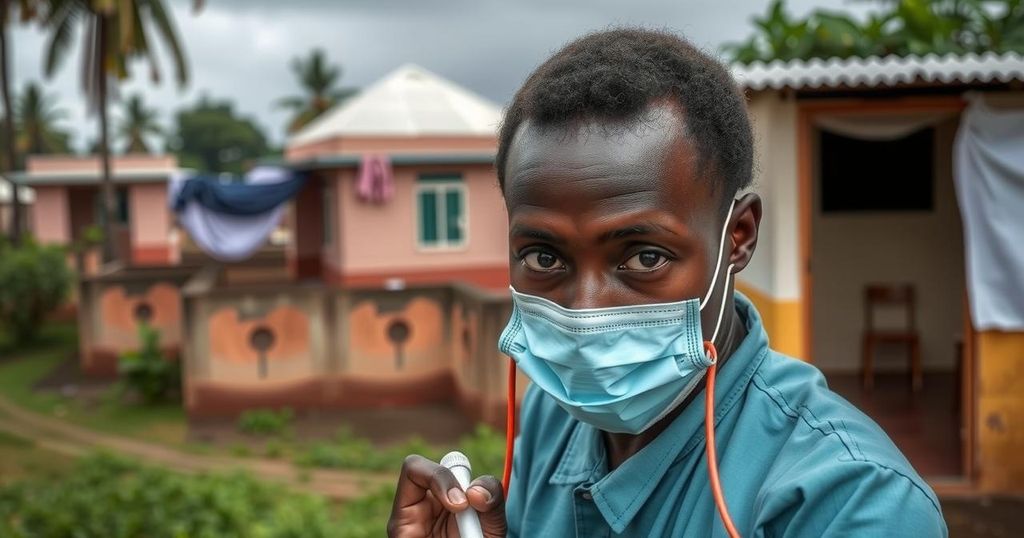Mystery Disease Outbreak in Southwest Congo: Key Facts and Insights
A significant disease outbreak in southwest Congo has infected over 400 people and resulted in 143 deaths, primarily affecting young children and malnourished individuals. Symptoms include fever and cough, and local officials face challenges in treating cases due to remote location and limited access to healthcare. Efforts to investigate the disease’s cause are ongoing, while experts urge caution against panic.
An ongoing undiagnosed disease outbreak in southwest Congo has resulted in significant health concerns, with health officials reporting that over 400 individuals have been infected since October. The disease has led to 143 deaths, primarily affecting children under five years of age in the remote Kwango province, where healthcare access is severely limited. Symptoms resemble those of flu-like illnesses, including fever, headaches, coughing, and body aches, predominantly affecting vulnerable populations such as malnourished individuals and young children.
According to data from the World Health Organization (WHO), between October 24 and December 5, there have been 406 recorded cases linked to the outbreak. Local authorities have noted a discrepancy in mortality statistics, citing 143 deaths against the 31 attributed by the WHO. The most affected areas are experiencing compounded challenges due to a lack of resources and difficult geographical access, necessitating rapid response efforts to enhance healthcare delivery and gather epidemiological data. Early indications suggest a possible respiratory disease, but further investigation is required to ascertain the exact cause.
Recent reports highlight that 64% of the patients are children under 14 and approximately 60% of confirmed cases are among females. The WHO and local officials have deployed rapid response teams to carry out surveillance and improve the healthcare infrastructure in the afflicted region. However, issues such as food insecurity have further complicated the situation, indicating that the risk level in affected communities is elevated. Despite the alarming nature of the outbreak, experts caution against panic as they await more definitive information regarding the nature of the disease.
Epidemiologist Ann Rimoin emphasized the importance of remaining calm until further data is collected, stating, “It could be anything… it could be influenza, it could be Ebola, it could be Marburg, it could be meningitis, it could be measles. At this point, we just really do not know.” The WHO has called for improved coordination at both national and local levels, alongside the establishment of better communication infrastructures to help address limited network coverage in the region. Immediate action is essential to manage both healthcare needs and prevent additional fatalities.
The mysterious outbreak in southwest Congo has raised alarms due to its high mortality rate, particularly among young children and malnourished individuals. The remote location of the outbreak in the Kwango province poses significant challenges for healthcare delivery and immediate response. The World Health Organization and local health officials are working to identify the disease while also dealing with underlying issues like food insecurity and limited access to healthcare resources, which exacerbate the situation. Understanding the disease’s spread mechanism and potential causes remains critical for effective containment measures and treatment.
In summary, the undiagnosed disease outbreak in southwest Congo presents a serious health crisis, with significant implications for the affected population, particularly vulnerable groups such as children and malnourished individuals. With over 400 cases reported and nearly 150 deaths, local health officials are working alongside the WHO to control the outbreak. While the situation is grave, experts urge caution in interpreting the data, emphasizing the need for further investigation to determine the exact nature of the disease and to formulate an effective response strategy.
Original Source: www.forbes.com




Post Comment